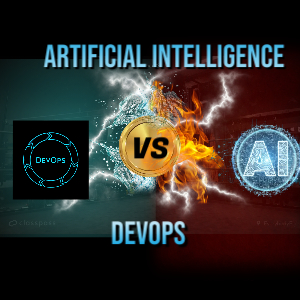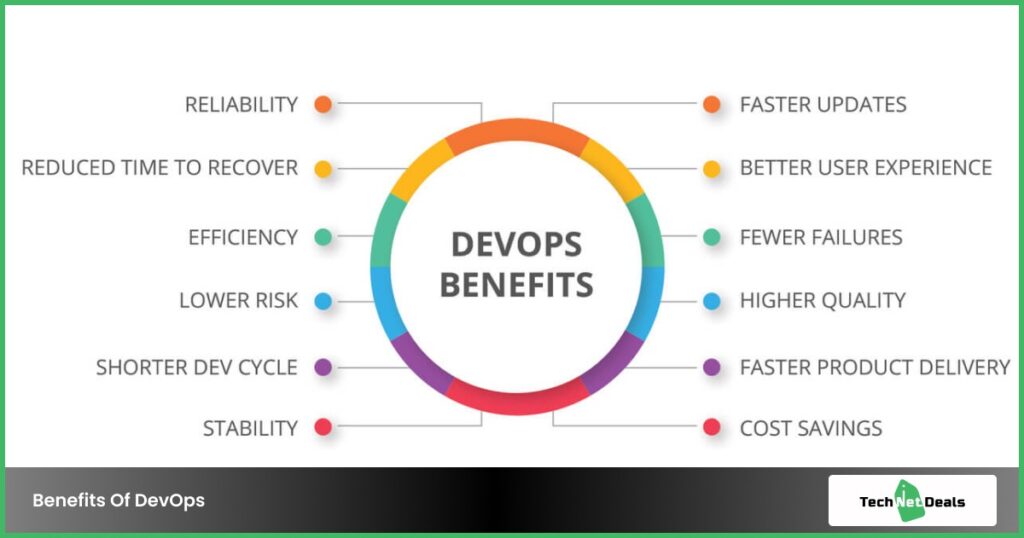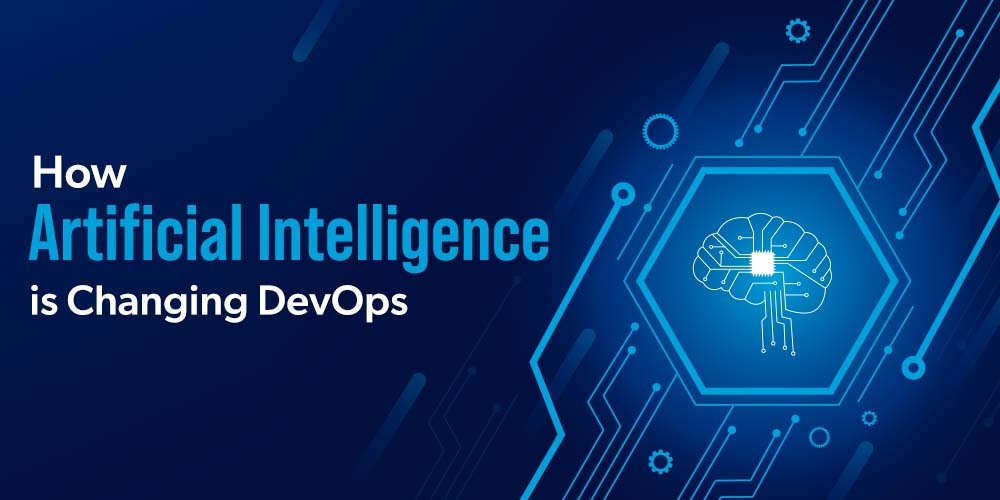Artificial intelligence (AI) is increasingly shaping our lives, and modern DevOps teams are no exception. AI is fundamentally changing the way we approach DevOps. One of these changes is a greater focus on security, especially building security from the ground floor. In this blog, we’ll explore how DevOps teams can leverage artificial intelligence? Build the right workflow.
Table of Contents
Understanding AI and DevOps

What Is AI?
AI is a field of computer science that deals with the technology used to create computer programs capable of simulating human intelligence. This allows them to perform complex tasks, such as with self-driving cars. AI is the broad umbrella of intelligent machines and includes applications like Machine Learning (ML.)
What Is DevOps?
DevOps is a combination of development (dev) and operations (op). The two divisions are mixed to increase productivity, speed, and safety. GitLab defines DevOps as “people who work together to conceive, build, and deliver secure software at maximum speed.” DevOps practices enable software developers and operations teams to create higher-quality deliverables faster. They do this through automation, teamwork, rapid feedback, and iterative improvements.
DevOps Team Takes Advantage of AI

While the advantages of artificial intelligence in DevOps are numerous, some of them are discussed below.
Make Up For the Lack of Talent
Many companies are currently facing a lack of properly trained cybersecurity experts. This is another problem that AI can solve, as it can increase the efficiency of these experts by creating a demand for a new breed of secure data scientists who can collaborate with AI-related technologies.
Higher Security
AI can improve security skills because it can generate customized code patterns that are safe and capable of fixing any detected vulnerabilities.
Maximize Productivity
Developer productivity can be maximized through artificial intelligence as it helps them identify bugs in code before it is delivered to production.
Quickly Enhance Software Security
A key benefit of AI in DevOps is its ability to enhance the security of software programs. This is achieved by increasing the execution speed of safety-related tests. Often, software developers are faced with choosing between delivering code by a given deadline and running time-consuming, necessary security tests. AI solves this problem, as developers can now meet their deadlines while running critical tests. AI performs this task by drastically reducing the time for threat vector identification and increasing the efficiency of false-positive identification.
As an advanced technology, AI has become very efficient in solving and mitigating the operational problems of DevOps. As the industry continues to transform at an unprecedented rate, artificial intelligence has become an integral part of addressing the complexities of DevOps.
Software Test
DevOps teams use different types of testing such as regression testing, functional testing, and user acceptance testing. A large amount of data is presented from various tests. Through artificial intelligence and machine learning, DevOps teams can identify specific patterns and collect relevant data to ensure proper coding practices and spot bugs.
Fundamentally, AI improves the software testing and development process for DevOps teams. Teams can use AI-based data to increase efficiency.
Fast Data Access
DevOps generates massive amounts of data, creating more problems for teams. Through artificial intelligence and machine learning, data accessibility has become more flexible and allows DevOps teams to compile and test data from a variety of sources. AI also helps teams organize and analyze data to get the big picture.
Efficient Implementation
In the DevOps space, human expertise is required to manage a dedicated environment. However, the transition to a self-sustainable environment allows DevOps teams to execute tasks efficiently. Once AI is functional, it requires minimal or no human intervention. It saves teams more time to drive innovation.
Feedback Loop
The basic function of DevOps is to collect data in different stages. With machine learning monitoring tools, DevOps can leverage log files, performance matrices, data tables, and more. DevOps can take these key recommendations and use them for different purposes.
Dedicated Alerts
DevOps creates a long list of alerts with no priority markers. As a result, it became extremely difficult for the team to process all the alerts. Using AI and machine learning, teams can use alert sources, alert intensity, and past behavior to prioritize dedicated alerts.
How Can DevOps Take Advantage of AI?
Leveraging the combination of artificial intelligence and DevOps is one-way organizations will continue to be successful in the future.
AI and DevOps are interrelated. The main job of DevOps is to create software programs, and they can use not only artificial intelligence to help this process but also artificial intelligence-based techniques such as natural language processing (NLP) in foreign language applications.
AI can help DevOps teams and make them more efficient throughout the process of testing, coding, releasing, and showing programs.
AI also helps DevOps teams work more efficiently by increasing automation, supporting problem-solving capabilities and making it easier for team members and teams to collaborate.
AI helps DevOps teams control the volume, velocity, and variability of data by helping them creatively and innovatively address inefficiencies in the software development lifecycle.
How AI is Transforming DevOps

The AI DevOps portfolio has the potential to alleviate many of the challenges DevOps teams face. Here are some of the ways AI is changing DevOps.
Data access is improved through the use of artificial intelligence. This makes DevOps teams more efficient and able to collaborate better. AI can be used to compile and organize data from many different sources. AI can also be used to analyze this data more efficiently.
Enhanced ability to combine necessary software security testing with a speed of deployment, among other security benefits.
Software testing has become more efficient, thereby increasing the speed of development.
Feedback collected from each phase of the software development life cycle is easier to collect and manage.
Can AI Replace DevOps?
It’s no secret that in 2022, AI will support businesses by improving service personalization, data protection, and customer interactions. According to a survey by GitLab, more than 4,300 managers and developers believe that some companies are releasing code 10 times faster. In the survey, as many as 80% of respondents agree that it is faster to release code through AI integration.
The truth is that AI is changing the way DevOps teams use and interact with data. AI-based tools allow DevOps teams more freedom to make better decisions and trust shared tools to resolve technical errors. Still, the pairing of AI and DevOps is still in its early stages, and AI tools aren’t advanced enough to replace DevOps as a whole soon.
In the information age, AI helps DevOps teams automate various operations and processes. To be fair, AI is bound to change the “way” humans perform tasks. For DevOps, this “change” is likely to be gradual rather than imminent.
Still, the fact remains that DevOps and AI combo are ideal ways to efficiently code, test, and compile software. Not to mention, AI speeds up the automation game for DevOps teams. Remember, AI can quickly find and solve problems and facilitate collaboration and productivity among DevOps teams.
In hindsight, organizations need to view DevOps as the beginning of a business-focused journey that can be automated in the coming years. As IT environments become automated, DevOps teams need AI more than ever to manage complex tasks. Companies can expect an AI-based approach to DevOps to kick off within the next five years. This shift will fundamentally change human engagement and IT operations.
Final Thoughts
If we summarize everything mentioned above, then it is clear that artificial intelligence is a way to improve the efficiency of software developers and DevOps teams.
But to reach its full potential, you have to see how you fit into the process. What are your best abilities? How does AI support these skills? How does it help your team innovate faster, or provide clearer information when needed?
By answering these questions and many others, your organization will be able to take advantage of artificial intelligence.




